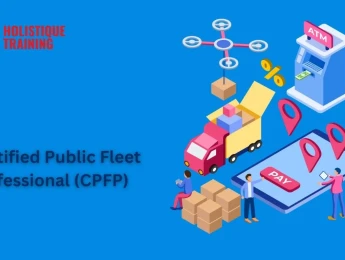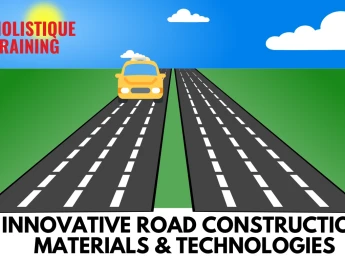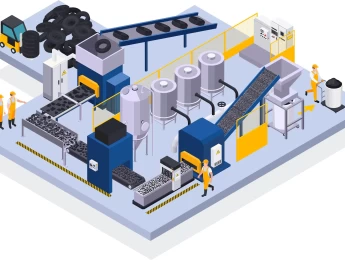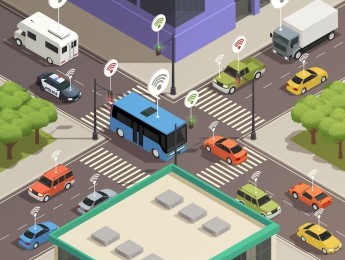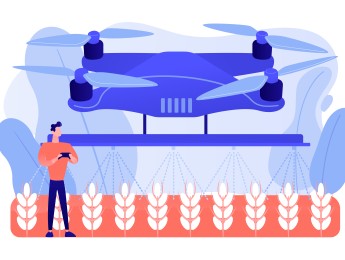The traffic and transport industry is extremely vast and has been vital for hundreds of years. Common standards and practices have evolved countless times to continuously meet customer demands. However, in modern times, the demands of this industry have shifted to meeting sustainability standards.
Sustainability is an ever-growing concern in the modern world, and the transport systems are currently rather unsustainable. To transition to meet new industry standards, organisations and individuals involved need to have a thorough understanding of the fundamentals of each traffic mode and how the current practices can be better optimised and improved.
While many traffic modes are inherently less sustainable, there must be a strong focus on understanding the challenges faced within these modes before starting the process of strategic planning and implementation. Sustainability changes do not have to be drastic; even minor changes to internal functions can greatly reduce the environmental damage the service may be causing.
Upon completion of this course, participants will be able to:
- Identify the individual characteristics of all traffic modes.
- Analyse specific characteristics to see how they benefit the traffic mode.
- Assess the market demand for suitable traffic modes.
- Review the fundamental principles of various traffic modes.
- Effectively manage traffic modes.
- Address key issues and risks associated with the traffic project lifecycle.
- Evaluate the vitality of sustainable traffic practices.
- Investigate how industry standards are evolving to be more sustainable.
- Implement changes to increase sustainability while maintaining efficiency.
This course is designed for anyone responsible for evolving current traffic and transport practices into more sustainable practices. It would be most beneficial for:
- Civil Engineers
- Strategic Development Directors
- Research Consultants
- Traffic and Transport Engineers
- Traffic Project Managers
- Logistics and Distribution Managers
- Telecommunication Analysts
This course uses a variety of adult learning styles to aid full understanding and comprehension. Participants will review genuine examples of different traffic modes to highlight current areas of practice that can be evolved into more sustainable practices.
They will be provided with the tools necessary to effectively carry out the learning exercises offered. With presentations, case studies, practical exercises, and video material, participants can develop a comprehensive understanding of the content taught. They will also be able to individually conduct a SWOT analysis of sustainability about their specific roles to demonstrate their newly acquired skills.
Day 5 of each course is reserved for a Q&A session, which may occur off-site. For 10-day courses, this also applies to day 10
Section 1: Fundamentals of Air Traffic
- Defining the processes of air traffic.
- The various traffic modes related to air transportation.
- Traffic planning and route optimisation.
- The difference between passenger and cargo traffic.
- Explaining what sustainability means about air transport and traffic.
- Understanding the difficulties faced when attempting to make sustainable changes.
- Identifying and prioritising areas where sustainability can be most easily achieved.
Section 2: Fundamentals of Road Traffic
- The principles of road traffic planning.
- Establish goals, objectives, and intentions when creating new sustainable traffic routes or improving existing ones.
- The vitality of traffic management and control.
- Aligning traffic efficiency with safety and sustainability.
- Focusing on creating accessible public transport to reduce traffic and emissions.
- Conducting a SWOT and sustainability SWOT analysis.
Section 3: Rail Traffic and Water Traffic Engineering
- The different types of trains – cargo and passenger.
- The methods of rail transportation – metro, light metro and underground metro.
- The advantages and disadvantages of rail traffic.
- Evaluating methods of making rail services more sustainable.
- The viability of water transport – passenger and cargo vessels.
- Challenges faced in making water transport more sustainable.
Section 4: Multimodal and Telecommunication Traffic
- The intermodal processes.
- Balancing customer needs with sustainable practices.
- Common connections of multimodal transport.
- Transmitting data while maintaining effective connection speeds.
- Optimising transmission equipment to ensure no unnecessary energy is spent.
- The importance of the connected world for sustainability.
Section 5: Adopting Sustainable Practices
- Utilising various methods to measure current sustainable practices.
- Establish goals and objectives in an action plan, detailing sustainability intentions.
- Evaluating industry standards of sustainability.
- Analysing where sustainable energy choices can be made in the short and long term.
- Electric vehicles becoming the global standard.
- Advancing onto renewable energy sources.
Upon successful completion of this training course, delegates will be awarded a Holistique Training Certificate of Completion. For those who attend and complete the online training course, a Holistique Training e-Certificate will be provided.
Holistique Training Certificates are accredited by the British Assessment Council (BAC) and The CPD Certification Service (CPD), and are certified under ISO 9001, ISO 21001, and ISO 29993 standards.
CPD credits for this course are granted by our Certificates and will be reflected on the Holistique Training Certificate of Completion. In accordance with the standards of The CPD Certification Service, one CPD credit is awarded per hour of course attendance. A maximum of 50 CPD credits can be claimed for any single course we currently offer.
- Course Code IND03-103
- Course Format Online, Classroom,
- Duration 5 days




